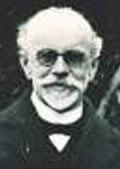the First Sunday of Lent
Click here to join the effort!
Bible Dictionaries
Vine's Expository Dictionary of OT Words
Browse by letter: A

William Edwy Vine
Welcome to the 'Vine's Expository Dictionary of OT Words', one of the dictionaries resources FREELY available on StudyLight.org!
Containing 446 entries cross-referenced and cross-linked to other resources on StudyLight.org, this resource can be classified as a required reference book for any good study library.
With over 400 entries, this timeless classic is THE reference guide to Old Testament Hebrew words for English readers. It explains the meaning of the original Hebrew with the added dimension of the context of the word.
All scripture references and reference to other entries within the text have been linked. To use this resource to it's full potential, follow all the links presented within the text of the entry you are reading.
If you find a link that doesn't work correctly, please use our convenient contact form. Please tell us the reference work title, entry title and/or number (this can be found in the address line), and a brief description of the error found. We will review and make corrections where needed.
You can also use this form if you have any suggestions about how to improve the usability of this resource.
These files are public domain.